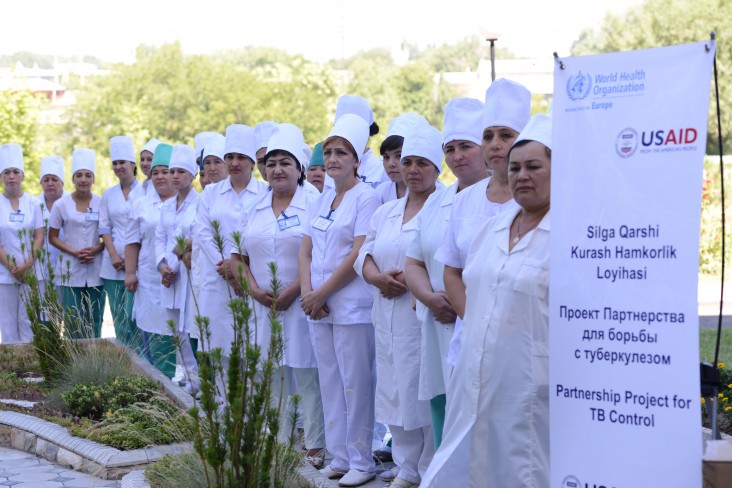
Nearly 25 years after initiating programs in Central Asia, USAID remains vitally involved leading regional development programs focusing on trade and markets, energy and water, and good governance and social sector improvements in Central Asia. In particular, our programs promote:
Expanded diverse and competitive trade and markets:
Intraregional trade in Central Asia represents less than five percent of total trade, making this one of the least economically integrated regions of the world. Greater economic dynamism can provide future opportunities for international businesses, especially in key areas such as services, energy, mining, higher education and infrastructure. Our programs help integrate the economies of Central Asia to be stronger and more resilient, demonstrated by significant increases in cross-border trade, including with Afghanistan and the broader South Asia region, and increased income-generating opportunities for the poor.
Enhanced regional cooperation on shared energy and water resources:
The fortunes of Central Asian economies largely depend on water and energy to power economic growth and satisfy the demand for resources. The management and storage of cross-border water and other energy resources requires regional cooperation. Our programs help convert the issues of water and energy to be compelling reasons for cooperation, instead of sources of conflict, resulting in more effective and equitable management of these two critical trans-boundary resources.
More effective and inclusive governance institutions that serve the public good:
Governance and accountability remain an issue of concern across Central Asia. Governments in some cases are reluctant to embrace open decision-making, and opportunities for public input and scrutiny are typically discouraged. In addition, global health problems – including HIV/AIDS and multidrug resistant strains of TB – remain acute in Central Asia. In fact, virtually the entire spectrum of development issues familiar to USAID – ranging from the importance of disaster preparedness to the challenges of conflict mitigation and management to the impact of new technologies to the need for transparency and good governance – is played out in one way or another across the region. Our programs support national and local government institutions throughout the region to be more responsive and accountable to citizens, and support civil society to advocate for citizens’ needs, thus improving governments’ abilities to manage the delivery of key public services in order to mitigate health threats and improve literacy.







Comment
Make a general inquiry or suggest an improvement.